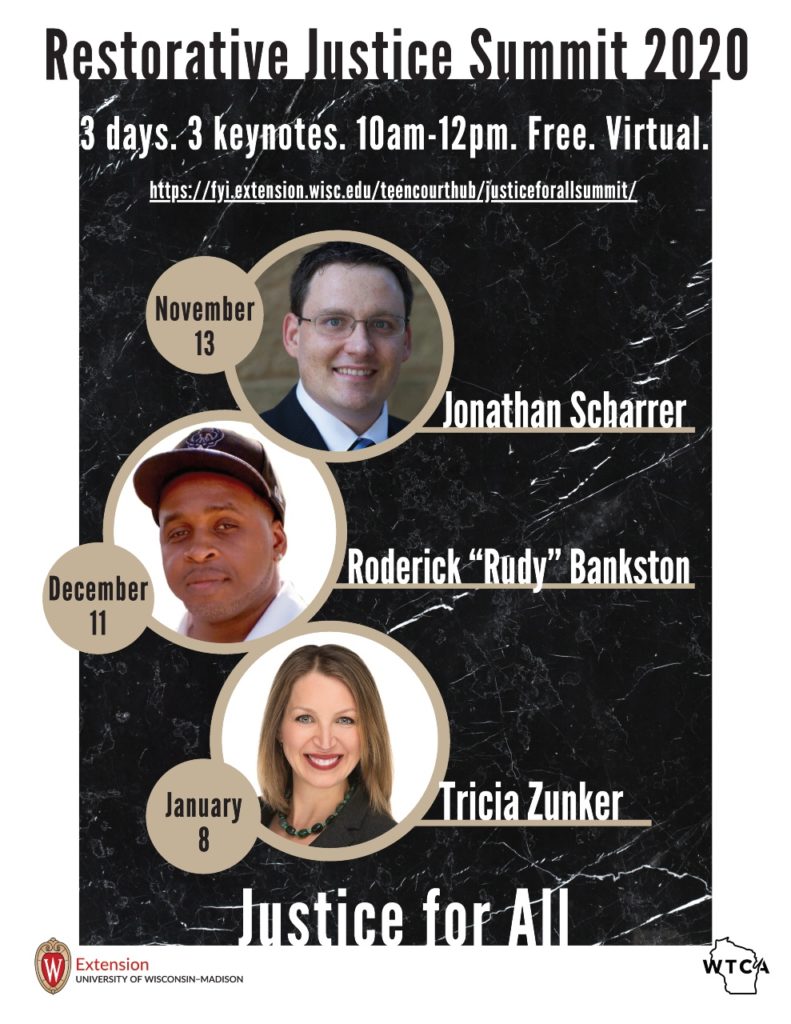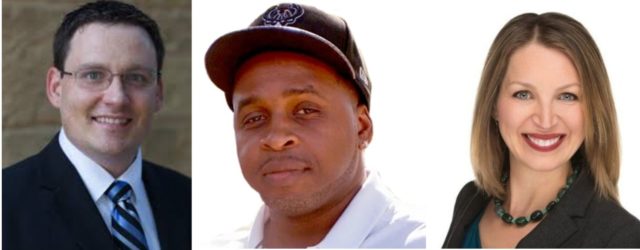The University of Wisconsin-Madison Division of Extension Community Youth Development program, in partnership with the Wisconsin Teen Court Association, will be hosting its first annual Restorative Justice Summit over a three-month period starting this Friday, Nov. 13 and also on Dec. 11 and Jan. 8.
The event was made possible by a grant from the Wisconsin Law Foundation. Due to the COVID-19 pandemic, the event will be hosted completely online via Zoom.
“[UW-Madison Division of Extension] wanted to stay away from having people feel like they needed to be in a virtual space for an extended period of time,” noted Annie Lisowski, professor of Youth Development for the UW-Madison Division of Extension. “We decided to do the second Friday for the next three months, to have an opportunity to share the work of young people and professionals in restorative justice, but also be able to accommodate the virtual world that we’re living in right now.
“Our goals of the summit are really to think about how to deepen individuals’ and professionals’ understanding of equitable restorative justice practices when they work with young people across the state,” added Lisowski.
The theme of this year’s event is “Justice for All.”
“We’re really trying to think about how we can move the needle towards more restorative kinds of practices and more equitable kinds of practices in this field, especially when working with young people,” said Lisowski. “Our ‘Justice for All’ theme was selected in part because of the social and environment and some of our renewed efforts to re-engage making systemic changes.”
Each event will feature one of three keynote speakers that will include Jonathan Scharrer, director of the Restorative Justice Project at the UW Law School’s Frank J. Remington Center; restorative justice practitioner Roderick “Rudy” Bankston and Tricia Zunker, a licensed attorney and judge for the Ho-Chunk Nation.
Each keynote will be followed by a variety of breakout room sessions.

Lisowski encouraged young people to attend the summit. “We’ll have young people who are presenters or parts of a panel, especially for the December 11th [event],” said Lisowski.
After each event day, summit organizers will be sending out an evaluation in which participants can reflect on the event. Lisowski noted that these evaluations will be taken into consideration with the hopes that they can be put into action.
“Systemic change is not an overnight process. It’s something that’s going to take a lot of time. And so we’re committed to that work over the long haul,” said Lisowski.
Registration is still ongoing and can be found here on the UW-Madison Division of Extension website.




























